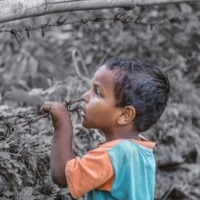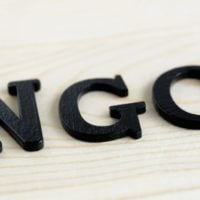International donors play a pivotal role in the development landscape, particularly in regions like Africa where local resources may be limited. These donors, which include governments, foundations, and private sector entities, provide essential funding and support to non-governmental organizations (NGOs) that are working tirelessly to address pressing social, economic, and environmental issues. The relationship between international donors and NGOs is symbiotic; while NGOs rely on donor funding to implement their programs, donors depend on NGOs to effectively execute their missions on the ground.
This dynamic is crucial for fostering sustainable development and improving the quality of life for communities across the continent. Understanding the motivations and operational frameworks of international donors is essential for NGOs seeking funding. Donors often have specific agendas, whether they focus on health, education, gender equality, or climate change.
By aligning their projects with the priorities of these donors, NGOs can enhance their chances of securing funding. Moreover, the landscape of international giving is evolving, with an increasing emphasis on transparency, accountability, and measurable impact. As such, NGOs must not only present compelling proposals but also demonstrate their capacity to deliver results that resonate with donor expectations.
Criteria for Selecting NGOs in Africa
Assessing Operational Capacity and Alignment
When international donors evaluate potential partners in Africa, they typically consider a range of criteria that reflect both the operational capacity of the NGO and its alignment with donor priorities. One of the foremost considerations is the NGO’s track record and experience in implementing similar projects. Donors are more likely to invest in organizations that have demonstrated success in achieving their objectives and have a clear understanding of the local context.
Key Criteria for Partner Selection
This includes having established relationships with community stakeholders and a proven ability to mobilize resources effectively. Another critical criterion is the NGO’s governance structure and financial management practices. Donors seek organizations that exhibit transparency and accountability in their operations.
Ensuring Sustainability and Long-term Impact
Additionally, many donors are increasingly interested in the sustainability of projects; they want to know how NGOs plan to maintain their initiatives beyond the funding period. This requires NGOs to articulate a clear strategy for community engagement and capacity building that ensures long-term impact.
Top 10 International Donors and Their Contributions
The landscape of international funding is diverse, with numerous organizations contributing to various sectors across Africa. Among the top international donors are entities such as the United States Agency for International Development (USAID), which has been instrumental in funding health initiatives, agricultural development, and education programs. USAID’s commitment to improving lives through targeted interventions has made it a key player in many African countries.
Another significant donor is the Global Fund to Fight AIDS, Tuberculosis and Malaria, which has provided substantial financial resources to combat these diseases across the continent. The Global Fund’s approach emphasizes collaboration with local NGOs to ensure that funds are used effectively and reach those most in need. Similarly, the Bill & Melinda Gates Foundation has made significant investments in health and education initiatives, focusing on innovative solutions that can be scaled up for broader impact.
Other notable donors include the European Union (EU), which supports a wide range of development projects through its various funding mechanisms, and the World Bank, which provides loans and grants aimed at reducing poverty and promoting sustainable development. The United Nations Development Programme (UNDP) also plays a crucial role by funding initiatives that align with the Sustainable Development Goals (SDGs). Additionally, private foundations like the Ford Foundation and Rockefeller Foundation contribute significantly to social justice and economic empowerment projects across Africa.
Impact of International Donors on NGOs in Africa
The influence of international donors on NGOs in Africa cannot be overstated. Their financial contributions enable NGOs to implement programs that address critical issues such as poverty alleviation, education access, healthcare provision, and environmental sustainability. For instance, through funding from international donors, many NGOs have been able to launch initiatives that provide essential services to marginalized communities, thereby improving overall quality of life.
Moreover, international donors often bring technical expertise and best practices that enhance the capacity of local NGOs. This transfer of knowledge can lead to improved project design, implementation strategies, and monitoring and evaluation processes. As NGOs adopt these practices, they become more effective in achieving their goals and can demonstrate their impact more convincingly to both donors and beneficiaries alike.
This not only strengthens the NGO’s position but also fosters a culture of learning and adaptation within the sector.
Challenges Faced by International Donors in Supporting NGOs in Africa
Despite their significant contributions, international donors face numerous challenges when supporting NGOs in Africa. One major issue is the complexity of navigating diverse political landscapes across different countries. Political instability can hinder project implementation and create uncertainties around funding commitments.
Additionally, varying regulatory environments can complicate partnerships between donors and NGOs, making it difficult for organizations to comply with both local laws and donor requirements. Another challenge is ensuring that funds are used effectively and reach the intended beneficiaries. Instances of corruption or mismanagement can undermine donor confidence and lead to a reluctance to invest further in certain regions or sectors.
To mitigate these risks, many donors are increasingly adopting rigorous monitoring and evaluation frameworks that require NGOs to provide detailed reports on their activities and outcomes. However, this can place additional burdens on NGOs that may already be stretched thin in terms of resources.
Future Trends in International Donor Support for NGOs in Africa
Looking ahead, several trends are likely to shape the future of international donor support for NGOs in Africa. One significant trend is the growing emphasis on collaboration and partnerships among various stakeholders. Donors are increasingly recognizing that complex challenges require multi-faceted solutions that involve not only NGOs but also governments, private sector actors, and community organizations.
This collaborative approach can lead to more sustainable outcomes as it leverages diverse resources and expertise. Additionally, there is a rising focus on innovation and technology as tools for development. Many international donors are investing in digital solutions that can enhance service delivery and improve data collection for monitoring purposes.
This shift towards technology-driven approaches presents both opportunities and challenges for NGOs as they adapt to new methodologies while ensuring inclusivity for all community members. Finally, as global priorities evolve—especially in light of climate change and social justice movements—international donors are likely to align their funding strategies accordingly. This means that NGOs will need to remain agile and responsive to changing donor priorities while continuing to advocate for the needs of their communities.
By staying informed about these trends and adapting their strategies accordingly, NGOs can position themselves favorably within the competitive landscape of international funding. In conclusion, international donors play an essential role in supporting NGOs across Africa by providing critical funding and resources necessary for addressing pressing social issues. By understanding donor criteria, leveraging partnerships, and adapting to emerging trends, NGOs can enhance their effectiveness and sustainability in creating meaningful change within their communities.
The future holds promise for continued collaboration between international donors and local organizations as they work together towards shared goals of development and empowerment.
If you are interested in learning more about funding opportunities for NGOs in Africa, you might find the article on “Call for Proposals: Digitisation Grants” particularly relevant. This grant aims to support projects that focus on digitizing services and processes, which can significantly enhance the efficiency and reach of NGOs operating in Africa. For more details on how to apply and what types of projects are eligible, you can read the full article here. This could be a valuable resource for organizations looking to leverage technology to expand their impact.
FAQs
What are the top 10 international donors supporting NGOs in Africa?
The top 10 international donors supporting NGOs in Africa are the United States Agency for International Development (USAID), the European Union, the United Nations, the World Bank, the United Kingdom’s Department for International Development (DFID), Germany’s Federal Ministry for Economic Cooperation and Development (BMZ), the Bill and Melinda Gates Foundation, the African Development Bank, the Global Fund, and the International Monetary Fund (IMF).
What types of support do these international donors provide to NGOs in Africa?
These international donors provide various types of support to NGOs in Africa, including financial assistance, technical expertise, capacity building, training programs, and access to resources and networks. They also support specific projects and initiatives aimed at addressing key development challenges in the region.
How do international donors select NGOs to support in Africa?
International donors typically select NGOs to support in Africa through a rigorous process that involves assessing the organization’s track record, capacity, governance structure, and alignment with the donor’s priorities and objectives. They may also consider the NGO’s impact, sustainability, and ability to collaborate with other stakeholders.
What are the key focus areas for international donors supporting NGOs in Africa?
The key focus areas for international donors supporting NGOs in Africa include poverty alleviation, healthcare, education, gender equality, human rights, environmental sustainability, economic development, and humanitarian assistance. They also prioritize initiatives that promote good governance, peacebuilding, and social inclusion.
How do international donors measure the impact of their support to NGOs in Africa?
International donors measure the impact of their support to NGOs in Africa through various methods, including monitoring and evaluation frameworks, performance indicators, outcome assessments, and stakeholder feedback. They also conduct regular reviews and audits to ensure accountability and transparency in the use of funds.
What are the challenges faced by international donors supporting NGOs in Africa?
Some of the challenges faced by international donors supporting NGOs in Africa include political instability, corruption, bureaucratic hurdles, limited access to remote areas, cultural barriers, and the impact of external factors such as climate change and global economic trends. They also grapple with the need to balance short-term relief efforts with long-term development goals.









































